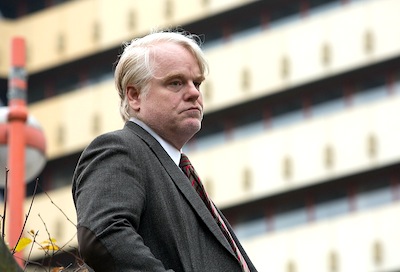 When our finest American actor succumbed to his demons earlier this year, film-goers knew it was a significant loss. But only with the release of A Most Wanted Man, the new film by Dutch filmmaker Anton Corbijn from the book by spymeister John LeCarré, did the full measure of the loss become apparent.
When our finest American actor succumbed to his demons earlier this year, film-goers knew it was a significant loss. But only with the release of A Most Wanted Man, the new film by Dutch filmmaker Anton Corbijn from the book by spymeister John LeCarré, did the full measure of the loss become apparent.
Philip Seymour Hoffman, as a German intelligence officer relegated to the backwater of Hamburg, pretty much owns this film, and so good is he that even lapses in the story line, the awkward pacing, and acting foibles by some of his co-stars, cannot pry our attention away from him.
When a brutally tortured Chechen/Russian Islamic immigrant surfaces in Hamburg, finds refuge with friends, and a social activist attorney Anna (Rachel McAdams) to help him redeem a lost inheritance, CIA and German security agents start paying close attention.
Somehow the film eludes pacing. It almost feels as though the final editing was done after Hoffman’s death, and the director couldn’t bring himself to cut a moment of the brilliant actor’s performance. And if the rest of the film had tightened around him, that might have worked. Instead one feels that rarest of emotions in a John Le Carré-driven film—irritation. Irritation which once or twice even expands into frustration. Boredom?
McAdams is earnest, but not believable as the attorney with an accent that wanders from Britain, to Oklahoma, to Munich and back. Nor is—gasp!—the usually stellar Willem Dafoe as a haughty, sartorially splendid Hamburg banker holding the key to the Chechen’s new fortune. Dafoe’s acting is all over the map, as if he’s trying on personalities in an effort to play at the same level as Hoffman. Alas you can actually see him acting. And this surprisingly inauthentic performance only underscores the effortlessness of Hoffman’s.
PSH calls upon resources we hadn’t seen before, even in his magnificent portrayal in The Master. Sagging countenance, the blown-out body, scruffy hair-in-the-eyes, endless cigarettes and booze—his character is an earnest hack trying to figure out whether terrorists are about to make a big play, as his counterparts in Berlin and Washington close in to make the score that rightfully belongs to him.
As the American CIA operative interested in taking over Hoffman’s territory, just as he’s about to make his score (or is he?), Robin Wright is almost perfect. She has that sinister charm that makes for classic spy cinema. But the pasty makeup and eerie dyed black hair somehow scream of phoniness. The wrong kind of phoniness.
As Hoffman’s dogged girl friday, the magnificent Nina Hoss works the bedroom circles under her eyes to eloquent effect. In her world-weary beauty is the perfect counterpart to Hoffman’s flawed schlubbiness.
Hoffman’s character may be the last true spy, committed to both the best and the worst in humanity. Indeed there are more than a few echoes of George Smiley in this film, as the Dutch director has chosen to make use of cold war tactics in a digital era. And as usual (for le Carré), Hoffman’s weary tactician is surrounded by betrayals from all quarters. The late great actor turns each glance, each bellow into a lesson in sensitivity and intelligence.


He was Gunter. Without Phil, perfection incarnate, the film would have been a bore.